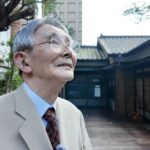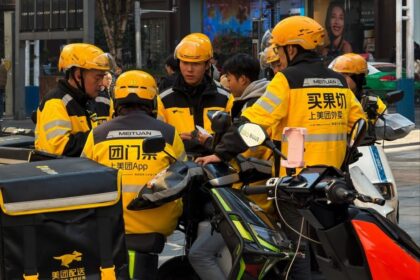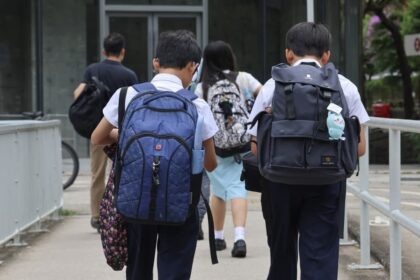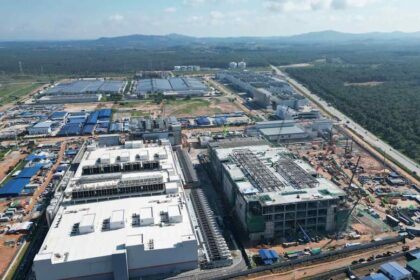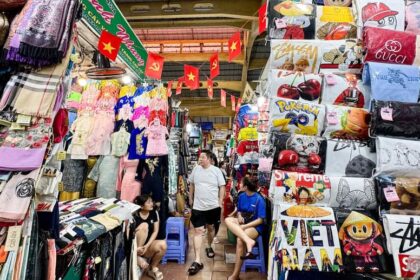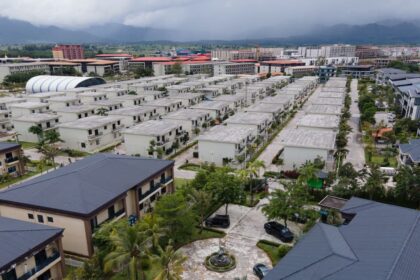Momentum builds for a fix after talks in Macau
Portuguese Prime Minister Luís Montenegro said he is optimistic about easing recent restrictions that affect Portuguese nationals seeking residency in Macau. After meeting the region’s chief executive, Sam Hou Fai, Montenegro described progress toward a more efficient system that could address constraints introduced in 2023. Both governments signaled they want procedures that support mobility while respecting local rules.
- Momentum builds for a fix after talks in Macau
- What changed in 2023 and why it matters
- Who is affected and what institutions are saying
- The numbers behind the policy shift
- How the rules work and what might change
- Portugal’s immigration debate adds another layer
- Policy caution in Macau
- What to watch next
- The Bottom Line
Since August 2023, Macau has stopped accepting new residency applications from Portuguese citizens who want to take up specialized technical roles. Eligibility has narrowed to applications based on family reunification or prior connection to the territory. Many professionals now rely on the blue card, a non resident work permit that allows employment but does not confer residency benefits such as access to public healthcare or subsidized education. Institutions that depend on Portuguese language skills say the change has complicated recruitment.
What changed in 2023 and why it matters
In August 2023 the Macau authorities halted new resident permits for Portuguese citizens seeking specialized technical roles. This ended a practice that had existed since the 1999 transition, when mobility between Portugal and Macau followed well established routines shaped by historical ties. The policy now channels most newcomers to the blue card system unless they qualify for family reunification, have a prior local connection, or enter through new talent recruitment schemes designed for highly qualified staff.
What is the blue card
The blue card is Macau’s identification document for non resident workers. It is issued by the Public Security Police to employees sponsored by an approved company. Holders can live and work in the city for the duration of the contract, but the card is tied to the employer. It does not grant permanent status or the social protections that come with a resident identity card. Family members may require separate permissions. Changing jobs or losing employment can lead to the cancellation of the card.
Macau has introduced talent recruitment schemes aimed at attracting qualified professionals. For Portuguese nationals seeking full resident status, these programs have become the main route. The shift has reshaped hiring for schools, cultural institutions, and other sectors that have long relied on experienced Portuguese professionals. Leaders in those sectors say the new framework has added uncertainty to hiring timelines and has narrowed the pool of candidates.
Who is affected and what institutions are saying
Groups that rely on Portuguese expertise, from schools to cultural associations, say the new rules make it harder to fill posts and replace departed staff. Leaders have urged Lisbon to keep the issue on the agenda during high level contacts, while stressing they want to work with Macau authorities to find practical solutions.
Maria Amélia António, president of Casa de Portugal in Macau, told local media she wants visiting officials to see how the changes have created bottlenecks when hiring for arts and language programs.
“We are facing significant challenges in finding replacements for those who have left Macao,” António said, urging clarity on how institutions can recruit qualified professionals under the current rules.
Miguel de Senna Fernandes, who leads the Association for the Promotion of Macanese Instruction, echoed those concerns, noting that the Portuguese School of Macau depends on a steady pipeline of qualified teachers from Portugal.
“As a Portuguese person in Macao, of course, I would like my fellow countrymen to be well treated, and naturally, that residency in Macao should always be facilitated,” he said.
Not every leader believes the situation requires a political push. Jorge Neto Valente, president of the foundation that runs the Portuguese School, said the school is functioning normally and that teacher credential issues are primarily administrative. He welcomed engagement from Lisbon, adding that the school values the autonomy it holds to decide who is qualified to teach the Portuguese curriculum.
“The Prime Minister promised full commitment and open communication on matters under Portugal’s jurisdiction,” Neto Valente said after meeting Montenegro at the school. “Pedagogical autonomy is crucial for us, because it allows students to access universities in Portugal, Europe and Portuguese speaking countries.”
Portuguese diplomats have also voiced concern. In February the Portuguese consul general in Macau described the restrictions as frustrating and contrary to expectations, adding that the city could benefit from the contributions of more Portuguese professionals as it seeks economic recovery and diversification.
The numbers behind the policy shift
Official data shows how quickly the change has altered residency patterns. In 2024, Portuguese citizens filed 20 residency applications with Macau’s migration authorities, and 13 were approved. That approval rate, about 65 percent, is far lower than recent years. In 2023, 52 of 56 requests were approved, a rate of 92 percent. In 2022, 31 of 32 were approved, and in 2019, before the pandemic, authorities approved 112 of 116 applications.
Applications also dropped sharply. The 2024 total was not only below the pre pandemic level, it was lower than during the pandemic years when strict border controls limited mobility. The downturn tracks the new guidelines that came into effect in August 2023, which stopped new residency applications for Portuguese nationals seeking to perform specialized technical functions.
Macau’s 2021 census recorded more than 2,200 residents born in Portugal. The Portuguese consulate estimates around 155,000 Portuguese passport holders live in Macau and neighboring Hong Kong. Many are dual nationals or people with long family ties to the region. These figures underline the depth of the community and why residency procedures carry weight beyond the labor market.
How the rules work and what might change
The residency regime in Macau separates employment authorization from resident status. A blue card allows a non resident to work after an employer sponsors a position that local hiring cannot fill. A resident identity card, on the other hand, unlocks social benefits and is not tied to a single employer. Since August 2023, new resident identity cards for Portuguese citizens in specialized roles are generally not issued unless the applicant qualifies through family reunification, prior local connection, or a new talent scheme.
Where diplomacy fits in
Montenegro said both governments want procedures that do not discourage mobility. Lisbon has raised the topic in multiple contacts. Foreign Minister Paulo Rangel visited Macau and Hong Kong in March to meet local officials and Portuguese community representatives. The Portugal Macau Joint Committee, which last met in 2019, is scheduled to convene again in Macau on 4 to 6 February 2026. That meeting gives both sides a venue to discuss concrete adjustments, even if immediate changes could come earlier through administrative guidance. Montenegro visited Macau as part of a wider Asia trip that included meetings in Beijing and a stop in Japan.
Officials in Macau say the latest talks covered bilateral relations and shared interests. Any shift would likely seek a balance, preserving the region’s policy priorities while clarifying routes for institutions to bring in needed expertise. Employers say predictability matters as much as eligibility, since hiring cycles for schools and cultural programs require advance planning.
What resident status enables
Resident status typically provides access to public services, greater family stability, and flexibility to change employers. Families often weigh children’s schooling and healthcare when deciding whether to relocate. Blue card holders usually rely on employer provided benefits and private arrangements, and they may face limits on access or higher fees for some services. The distinction between employment permission and residency makes the choice of route more than a legal technicality. It affects everyday life.
What institutions want clarified
Recruiters in education and culture point to three needs. First, clearer lists of eligible roles within talent schemes and transparent criteria to recognize foreign teaching credentials. Second, faster processing and simpler rules for transferring blue card holders between employers. Third, well defined document checklists to reduce back and forth during applications. School leaders say these practical steps would help them plan semesters and secure staff in time.
Portugal’s immigration debate adds another layer
Portugal is tightening parts of its own immigration and citizenship framework. The government has announced plans to double the standard residency period required for naturalization from five to ten years for most applicants. Rules around family reunification and vetting are also being toughened. The proposal reflects domestic political pressure for stricter controls, with the far right Chega party arguing for harder lines. Immigrants from Portuguese speaking countries would face a seven year requirement.
Lawyers in Portugal have also flagged legislative changes approved in July 2025 that overhaul entry and residence rules for foreign nationals and end the previous mechanism known as manifestation of interest. The reforms still had to pass constitutional scrutiny at the time. These moves do not directly affect Portuguese nationals moving to Macau, but they form the backdrop for how Lisbon manages migration questions at home and abroad.
Policy caution in Macau
Macau has tightened national security enforcement and updated laws to align with mainland China in recent years. The atmosphere has grown more sensitive around politics and foreign engagement. In July a veteran pro democracy figure, Au Kam San, was arrested on allegations of collusion with foreign forces under security legislation. Authorities said he had been in contact with an overseas organization since 2022. Civil society groups warned the arrest could have a chilling effect.
These developments are not directly linked to residency processing for Portuguese nationals. They do provide context for why immigration and residency decisions receive close scrutiny. Macau officials are likely to continue emphasizing stability and control, even as they seek specialized skills to support education, healthcare, and cultural life. Portuguese professionals have a long history in these sectors, which makes the current discussion about mobility a practical issue for institutions and families.
What to watch next
The coming months will show whether talks lead to small administrative adjustments or a broader recalibration. Employers are looking for a clear list of eligible roles, faster timelines for blue card renewals and transfers, and well defined pathways into talent schemes that can result in resident status. Many candidates also want certainty about access to public services for dependents, since family considerations influence decisions to relocate.
Diplomatic calendars will also shape the pace. Paulo Rangel is expected to maintain engagement with Macau authorities and with the Portuguese community in the region. The Joint Committee meeting in early February 2026 provides a formal forum to codify any changes. If there is progress before then, it will likely arrive through incremental guidance by departments that handle labor importation and residence applications.
The Bottom Line
- Portugal’s prime minister says he is optimistic about easing restrictions on residency for Portuguese nationals in Macau after talks with Chief Executive Sam Hou Fai.
- Since August 2023, Macau has halted new residency applications for Portuguese citizens in specialized roles, channeling most applicants to blue card employment permits.
- Residency applications by Portuguese citizens fell to 20 in 2024 with a 65 percent approval rate, compared with a 92 percent approval rate in 2023.
- Community leaders say hiring for schools and cultural programs has become harder, while some argue existing arrangements are workable with better administration.
- Lisbon and Macau plan to reconvene the Portugal Macau Joint Committee on 4 to 6 February 2026 after a long break since 2019.
- Portugal is tightening naturalization rules at home, a separate process that forms part of the broader migration debate.
- Macau’s political climate remains sensitive, which helps explain caution around residency and immigration decisions.




